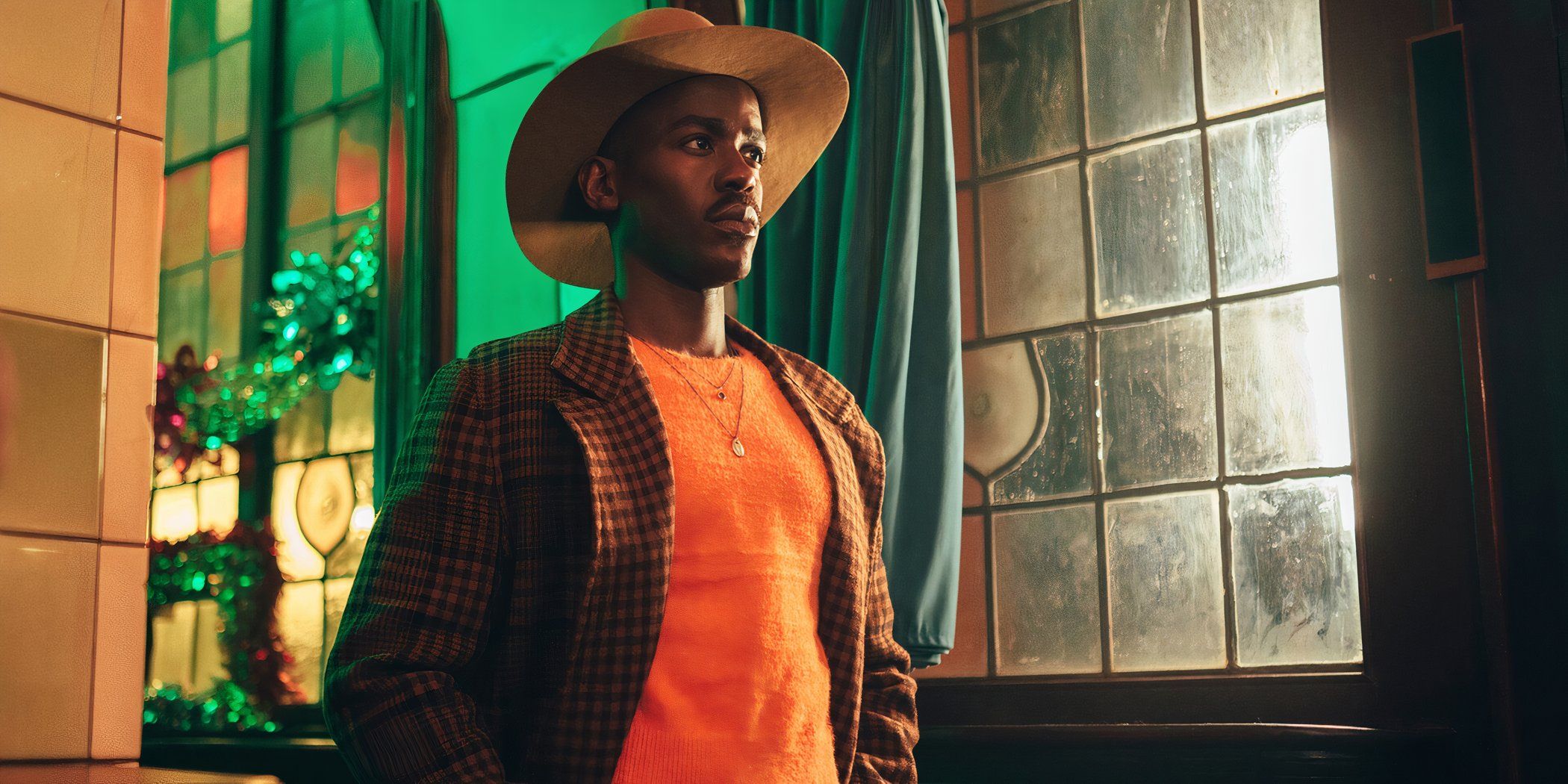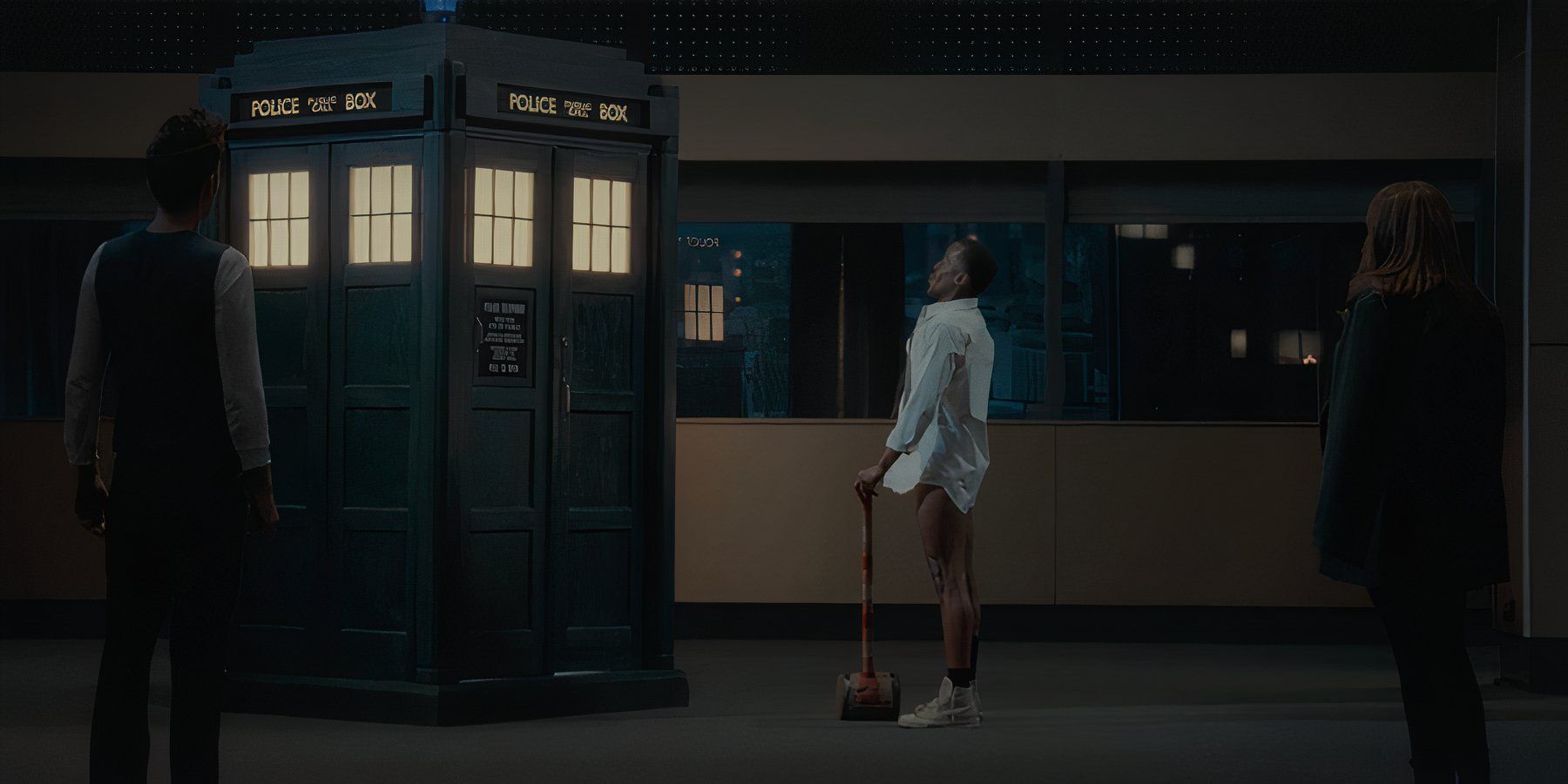Key Takeaways
- Weeping Angels are iconic Doctor Who villains, capable of feeding off unlived life.
- Bringing back the Weeping Angels in the upcoming season could lead to oversaturation.
- While not returning in the next season, the Weeping Angels will eventually make a comeback due to their unique impact on the show.
Throughout its history, Doctor Who has produced hundreds of villains who have all brought something entirely different for the science fiction series. Each villain has told a different story, whether they’ve been one-off characters or consistent enemies of the Doctor, but only a select number of them have become classics.
Characters such as the Daleks and the Cybermen have often existed for decades. However, the Weeping Angels are a modern example of a great Doctor Who villain, but that doesn’t mean they need to return in the upcoming 15th season of the show.

Related
Doctor Who Writer Comments Paint A Worrying Picture For The Show
Doctor Who writer Steven Moffat has teased the show leaning towards being more humorous in the future.
Who Are The Weeping Angels?
The Weeping Angels are Doctor Who villains who were first introduced to the show in 2007 as part of the episode ‘Blink.’ It’s often considered to be one of the greatest and scariest episodes in the show’s history, which is impressive considering how high the bar for that is after all these years. They’re an alien race resembling stone statues, typically painted as angels with wings. However, they’re anything but angelic, instead, they easily strike fear into the Doctor, his companions, and anybody watching the show.
They boast vampire teeth and clawed hands, and they are capable of sending a person decades into the past by touching them to the point that they die in the present time. That allows them to feed off the energy of the unlived life in front of them, which is one of the reasons they’re such intense and feared villains. They’re also unassuming, as they seem still and silent, but as soon as people aren’t watching, they move with great pace to close in on their potential victims. It puts lots of strain on the characters to constantly be watching and not blinking, leading to some fantastic television moments.
Over the years, they have been involved in five episodes of Doctor Who as the main villains and have also had cameo appearances in six further episodes, proving how quickly they have become regular contributors to this series. That’s because of their popularity and versatility and the fact that Weeping Angels are guaranteed to have audiences jumping in fear, which is a reaction Doctor Whowriters always want to try to evoke.
Why They Shouldn’t Be Brought Back Yet In Dr. Who
The upcoming 15th season of Doctor Who could bring back some classic characters and villains that people are familiar with, and the Weeping Willows would prove to be a popular option due to how beloved they are. However, considering how often they’ve appeared since their debut in 2007, it isn’t the right time to return. There is such a thing as oversaturation, and using them too many times would risk bringing less reward in terms of the reaction that the characters get from audiences. Doctor Who doesn’t want to reach the point where people aren’t excited by the Weeping Angels, and that could be the case if they come back again so soon, especially since they appeared in five episodes throughout 2021.
What makes them so good is that they essentially force the Doctor or his companions to remain still, as the episode ‘Blink’ showcased. However, that would feel extremely similar to last season’s ‘Boom,’ where the Doctor was trapped on a landmine, unable to move until he worked out how to survive at the last moments of the episode. Putting the Weeping Angels into the current version of the Doctor’s world would be too soon; therefore, it would feel repetitive of what has already been done.
In addition, the Doctor is likely to get a new companion in the next season, which is another reason to hold off on the Weeping Angels. They’re such powerful villains that they’re best used when emotions are at their highest and audiences truly care about everyone involved. That also pulls the most emotion from the Doctor, as he’s more invested in the people he’s with.
Could They Return In The Future?
Even though the upcoming season of the show is the wrong time for the Weeping Angels to be brought back, there’s no doubt that they will eventually return to the hit show because the Lonely Assassins are such fantastic characters, and great stories can be told with them if the writing is done well. Doctor Who likes to provide different episodes in every season, which often include a few scary and intense ones where the choice of villain is crucial.
Considering the way that the Weeping Angels look to feed off their victims, they’re always going to be an excellent choice to fill that gap and create something special. There are also only so many villains and stories that can be created before an idea is recycled, so it makes sense that past characters end up being brought back into the show for another episode. The Weeping Angels have enough potential to be used countless times in the future, as their backstory and the way in which they provide scares are easy to work into an episode.
Doctor Who audiences are dedicated and often love to be hit with nostalgia in the form of previous characters, especially those who positively impact the show overall. The Weeping Angels would be easy for the show to market because audiences would instantly think about the iconic episodes they’ve been involved in and how intense they are, which builds excitement. However, the upcoming season just isn’t the right time for this version of the Doctor to tackle such a powerful and intense villain.
















Leave a Reply